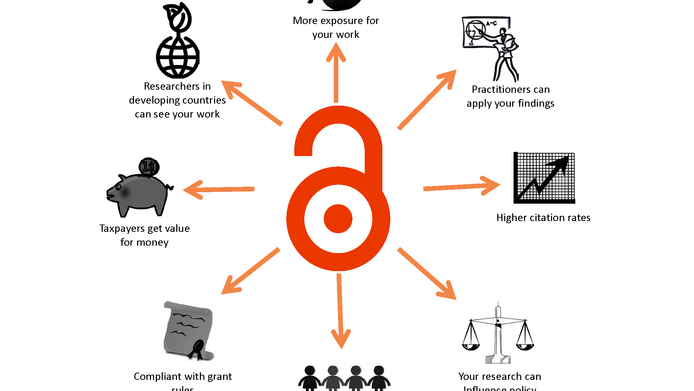Open Access Publishing at Springer

The Springer Compact Agreement may not be an optimal agreement, but still is very satisfactory because the agreement paves the way for a full transition of the academic publishing systems to Open Access. However, naturally, a few concerns persist in regard of Open Access in general and such agreements in particular.
Reservations and Scepticism
Some publishers and even librarians believe that the existing system does not call for change. The attitude is: Everything is fine as it is. One argument voiced in favour of continuing the status quo is the fact that the number of publications offered to scholars rises more rapidly than do prices. Besides, some scholars and research funders believe it would be entirely adequate if the scientific community would be able to access publications and data amongst each other. In addition to proponents of a traditional publication system, there are also concerns among advocates of Open Access itself, who prefer to organise themselves on their own and dissociate from large publishers because they believe the community will be able to run the system more economically and in a better way if left to do so independently.
Triggering new developments
Hence it is all the more remarkable to note that this agreement has enabled its partners to shed the constraints imposed by
the above mentioned widespread concerns and dare to take this important step. It is an important step in a future-oriented direction. To us this means moving the change forward and taking the next steps. Things are moving forward and definitely improving. As FWF mentioned elsewhere, at least four measures will be needed to establish a functioning academic publication market in the future.
Further measures and goals
First we need greater transparency of costs because there are strong indicators that there is enough money in the system (even in Austria) to finance Open Access. The Max Planck Society has made a very good suggestion in this regard. Second, those offering possibilities of publication must be confronted with greater competition, in accordance with the cost-benefit ratio, failing which there will be a rising concentration in the market and further hikes in prices. This includes the fact that research institutions will have to make greater efforts to establish non-commercial publication models of high quality. Third, in an increasingly internationalized research landscape we need more cross-border cooperation between funders, including common funding models. Fourth, as in the Netherlands, Open Access should become a part of the official government policy. We look forward to new impulses for Europe as well as Austria through the EU Presidential Election of the Netherlands in 2016.
Springer Compact licensing model By now, only scholars from one Austrian institution have access to all subscription-based journals from Springer (more than 1,600). Publishing Open Access in those journals is almost limited to scholars funded by the FWF. From January 2016 onward, the new license model known as Springer Compact will enable scholars working at 34 research institutions in Austria to access more than 1,600 Springer subscription-based journals. Furthermore, as corresponding authors scholars will be able to publish “open access” in those journals, without having to worry about financial terms and conditions or administrative requirements. In comparison to the current agreement, the new deal is slightly more expansive but offers much more services for authors as well for readers.
Thanks to many contributors
Finally, on behalf of the FWF I would like to express my most sincere thanks to all persons involved in the accomplishment of the Springer Compact License. Several individuals contributed to the fruition of this agreement:
- At Springer Verlag, special thanks to Heike Klingebiel, Juliane Ritt and also Wim van der Stelt for their constructive negotiations.
- Austrian Academic Library Consortium (AALC/Kooperation E-Medien Österreich/KEMÖ) most of all Brigitte Kromp from the University of Vienna and Bruno Bauer from the Medical University of Vienna, made this agreement possible in the first place through their immense dedication and pragmatism – as they did in previous agreements such as SCOAP³, with IoP Publishing or with Taylor & Francis.
- The Federal Ministry of Science, Research and Economy (BMWFW), especially Peter Seitz, who supported and actively assisted the negotiations between the publishers and the Open Access Network Austria (OANA) for several years.
- At FWF I wish to especially thank the former President Christoph Kratky and also highlight the contribution of the current FWF Board, because they made it possible to take risks despite opposition and focus actively on the objectives.
- The Universities Austria (UNIKO), mainly represented by the Vice-Rector Susanne Weigelin Schwierdzik and the President Heinrich Schmidinger, made a significant contribution. Their dedicated efforts gave the subject the required emphasis in terms of research policy. The fact that it was a success formula has been proven by the strategies of Dutch universities, where the Chancellors of the universities took over the negotiations with publishers in order to establish Open Access.
Falk Reckling is Head of the Department of Strategy Analysis at the Austrian Science Fund FWF. He is in charge of strategic affairs, research statistics and documentation as well as Scholarly Communication to promote a transparent and widely accessible publication system.





